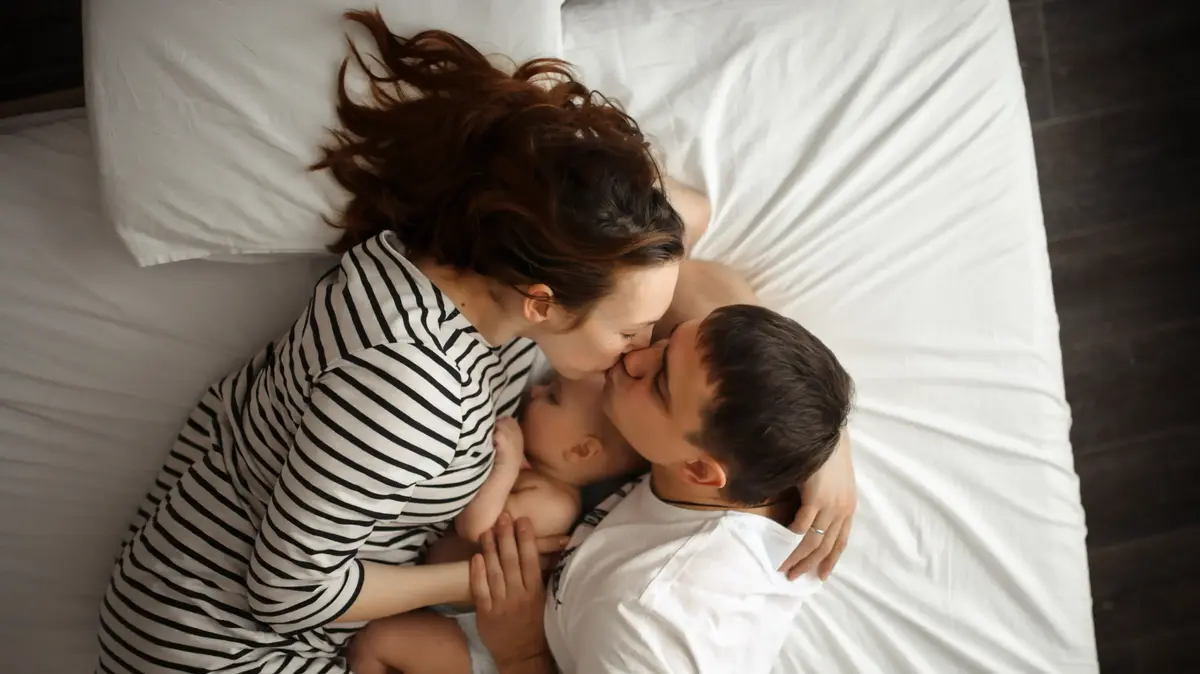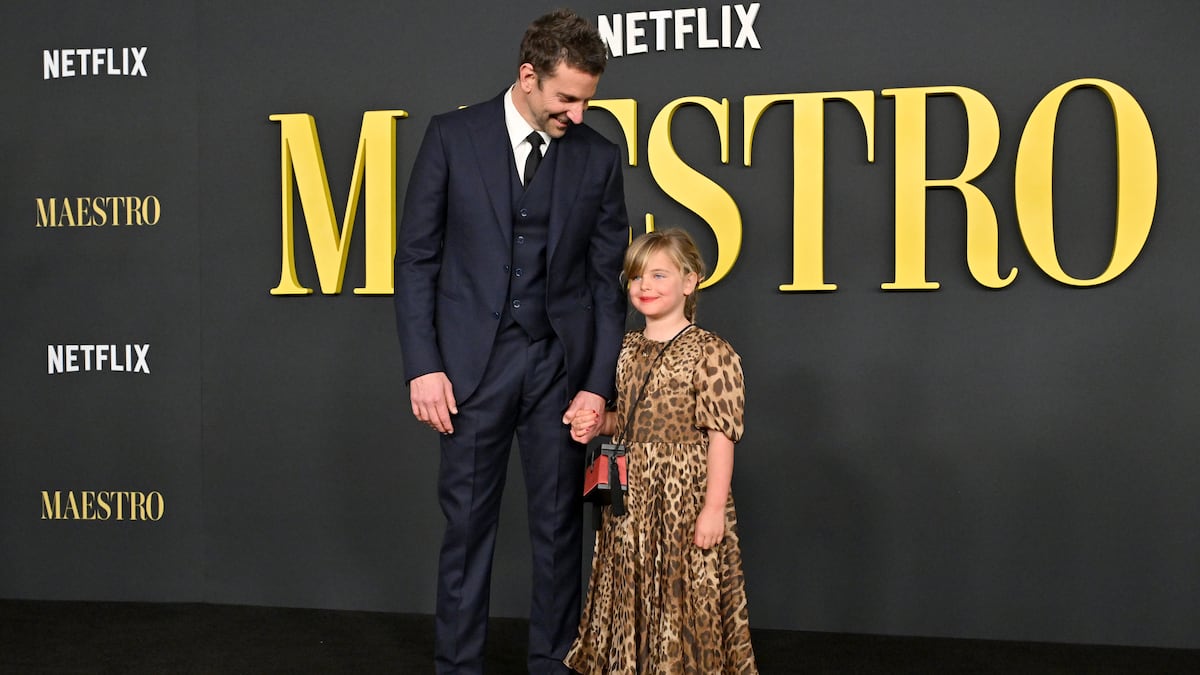Carlos and Ana have two children;
a 10-year-old girl and a 13-year-old boy. The relationship of this couple with their children is exemplary, they have changed their place of residence to take them to certain schools and one could say that they are vocational parents.
Now, Carlos feels that it is time to talk about sex with his son, who is somewhat more introverted than his sister.
He has entered adolescence with that vow of silence that some boys seem to have signed, and that he is only excused for extremely serious cases and with the use of monosyllables.
"I don't know how to broach the subject," he confesses, "and I know several friends in the same situation."
That speech that many parents feel compelled to give their children produces so much unease that, when the time comes, it is done clumsily, wanting to finish and with the exclusive audience of a teenager who sees no reason to break his silence or stop looking at his iPhone.
The young man, who has already logged many hours of porn viewing and who has probably already had an occasional fling with someone of the opposite sex or his own, looks at his father with an expressionless face while his thoughts oscillate between “Come on dad, I already know everything!”
and “Jo, well, the poor thing is having a bad time!”.
More information
Dismantling the stigma of non-monogamous relationships: neither whim nor vice
"What some parents don't know is that they have been talking to their children about sex since they were born," says Noemí Domínguez, sexologist and psychologist at the Lo Bueno Si Breve psychology cabinet in Barcelona, and with extensive experience giving talks on sexuality in schools.
“Not in words, but in the way they behave at home, with her partner and her shows of affection towards her.
In the way they react to intimate scenes in a movie, in the face they make when they walk down the street and see two people of the same sex kissing, or in the degree of naturalness or discomfort when, accidentally, a member of the family sees another half-naked in the bathroom.
It is impossible not to educate.
Inevitably, we are always educating our children with our way of acting in the face of life situations”,
Sexuality education is not limited to the mechanistic or technical section (such as putting on a condom, for example) but covers all aspects of the personality.
“When we force a child to kiss a friend of ours, we are entering the field of sexuality, of the limits of the body and even of consent,” points out Domínguez, “and we should not force him, because that way he will think that to be My dear, you have to give something in return, even if you don't feel like it."
"Sexuality is so implicit in all areas of life that the natural thing is to talk about it as the little ones ask questions," says Ana Yáñez Otero, health psychologist and clinical sexologist, director of the Extremeño Clinical Institute of Sexology, member of the Advisory Committee of the World Association for Sexual Health (WAS) and of the Board of Directors of the Spanish Federation of Sexology Societies (FESS).
“It is then that you can talk to them about the different parts of the anatomy, how to respect other bodies, limits, affections, who can touch your body and who cannot, about the different types of families and everything that it arises ”, Yáñez sentences.
Information without education is of little use.
The example of whether or not to wear a condom when there is casual sex is illustrative of how having the information is not always enough to choose the most appropriate option.
Almost everyone knows that doing without a condom, when having sex with people whose sexual history we don't know, is like buying a ticket for the sexually transmitted disease (STD) raffle.
What is it then that makes some wear it and others don't?
According to Noemí Domínguez, the answer to this question lies in “the education received on topics such as self-care, risk, the ability to say no, the ability to negotiate, respect for ourselves;
self-esteem, which prevents us from doing what others tell us to like us or fit in with the group, or the fact of always carrying condoms, just in case”.
Education is something like a good immune system.
We cannot pretend to live in a world without viruses or bacteria, what we can try is to have our defenses in shape so that, when the time comes, we can deal with pathogens properly.
Domínguez acknowledges that, even today, the first menstruation is usually covered with a certain gravity, and it is usually the moment that, generally, many mothers choose to talk about the dreaded issue with their daughters.
Thus, lapidary phrases abound such as "you are now a woman", "you can now have children" or "now you have to be more careful with boys".
“Ideally, boys and girls should already have an idea of what is going to happen to them at puberty, to their bodies and to their minds.
But a realistic idea, neither idealized nor focused exclusively on the dangers of sex”, recommends the sexologist and psychologist.
"The idea of telling your son: 'Look, today we meet at six in the afternoon in the living room to talk about sex' doesn't seem very good to me," says Antonio Daniel García Rojas, psychologist, sexologist, director of the Department of Pedagogy at the University of Huelva and a member of FESS, who also teaches sexuality classes to families.
“I always say that what has to prevail is naturalness;
but many parents approach this topic with great fear because they are aware that their children have a lot of information that they do not have (different sexualities, new terms to designate tastes or attitudes, etc.).
Many have told me: 'And what do I do if my son asks me what pansexuals are, for example, and I don't know what to answer?'
More than indoctrinate, accompany
Approaching the adolescent hoping that he will confess as he would with a friend does not give good results either: "During puberty a process appears through which the human being begins to realize the importance of his privacy and intimacy, and in this sphere he it finds the realm of sexuality” points out Domínguez.
“It is therefore unlikely that our children will tell us about their adventures and we shouldn't ask them either.
More than asking directly, we must suggest or we can also tell them about our experiences that can serve as a lesson, without the need to enter into intimacies, if we do not want it”.
“The important thing is that they know that parents are always a support they can turn to when there is a problem or something that worries them too much, and that they are not going to react by getting angry with them or criminalizing their actions,” says Yáñez.
Parents' fear that their children will suffer from love, be disappointed, contract an STD or, even worse, be victims of sexual abuse is logical, but emphasizing the dangerous side of sex is not appropriate.
“It is already known that boys who receive sex education start their relationships later, choose their partners better and have more resources to make responsible decisions, outside the group.
Even so, no one is safe from problems and you have to provide them with some basic tools and rules, such as never going out with someone they don't know well, always letting friends or parents know where you are, not leaving drinks out of control or drink things offered by strangers and not abandon anyone who has had too much to drink,” says Ana Yáñez.
Porn is another workhorse.
Trying to ban it is like putting gates on the field because they will see it sooner or later anyway.
“Here I am in favor of a parental pin”, comments Antonio Daniel García Rojas, “controlling mobile phone consumption because children start watching porn at seven and eight years old, when they are given their first phone and then the consultations are full of young men with erectile dysfunction or girls with vaginal tears, who try to do what they have seen, "explains the sexologist.
“When they are 14 or 15 it is different, but before talking about pornography I would talk to them about other things, about what a healthy sexuality is, about diversity, about commitment, about love, about feelings.
When I give talks about it to teenagers,
Rita Abundancia is a journalist, sexologist and author of the website
RitaReport.net
.




/cloudfront-eu-central-1.images.arcpublishing.com/prisa/6BSAX5VN3NEQ5GOP6ZAECQKKOY.jpg)










